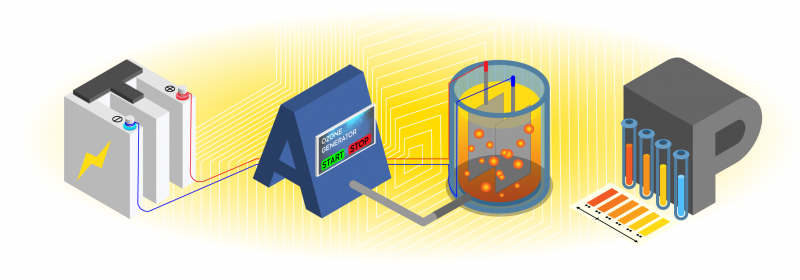Projects
Project 1.
Nickel-containing wastewater treatment and resource recovery using anodic oxidation
The composition of electroplating wastewater is complex and contains a variety of organic compounds and heavy metals which, if discharged, could cause significant damage to both human health and the environment. Of the various technologies currently used to treat nickel-containing wastewater, electrochemical advanced oxidation processes (EAOPs) have the advantage of high efficiency, small footprint, minimal secondary pollution and potential for a high degree of automation. Strong oxidative radicals are generated using special electrodes optimised for this technology. CTET is developing a highly efficient and low-cost process enabling both organic degradation and nickel recovery from electroplating wastewaters.

Project 2.
Ground water treatment using solar powered membrane capacitive deionisation technology for drinking water supply in remote villages in northwest China and central Australia
Membrane Deionization (mCDI) is an innovative water treatment technology by which charged contaminants (such as positively charged sodium ions and negatively charged chloride ions) are removed from the water source by "electro-sorption" in porous electrodes of opposite charge. The technology operates at low potential which renders it suitable for operation by photovoltaic power supply. As these units don't require mains power, they are ideally suited for water treatment in remote locations not serviced by mains power.
UNSW and CTET are in collaboration with partners from both China and Australia to undertake field trials of PV powered mCDI units to treat salty groundwater in remote villages in northwest in China and Central Australia.

A dual-train double-electrode system is currently running in northwest in China (picture above). This project is supported by Goldwind Environmental Protection who are in collaboration with UNSW and CTET to develop commercial scale of PV-powered mCDI units. The PV panels used in this trial was donated by LONGi, which is the 15 high-efficiency single crystal components.
An 8-electrode MCDI system is currently under construction in Yixing and will be shipped to Dubbo in New South Wales in Australia where it will be used for reduction in salinity of both treated wastewater effluent and brackish groundwaters.

